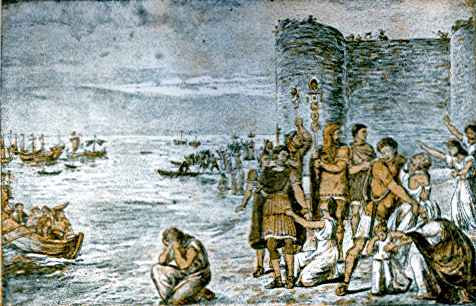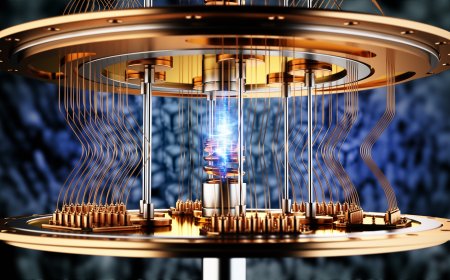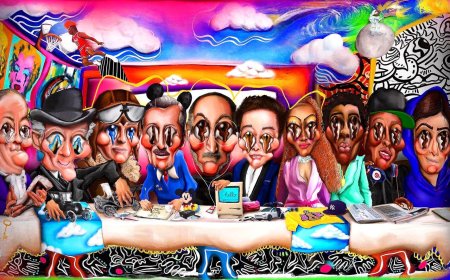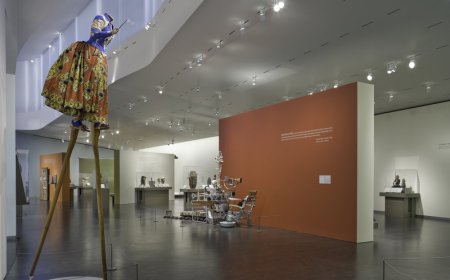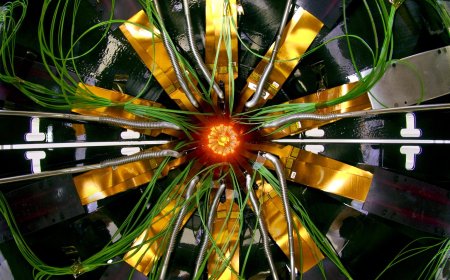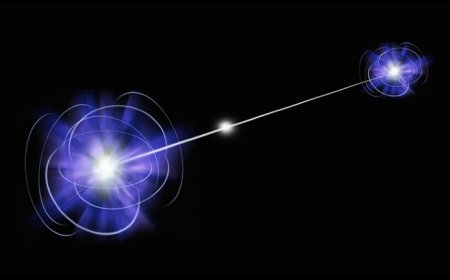Why Is Time Travel Possible Or Not According to Physics
According to physics, time travel is potentially possible in some theoretical scenarios, but practical time travel, especially backwards in time, is currently highly speculative and faces significant challenges. Einstein's theory of relativity suggests that time and space are interconnected, and faster-than-light travel could lead to time dilation (time passing slower for the traveler), which could be a form of time travel. However, current physics also suggests that traveling back in time might violate causality and could lead to paradoxes.
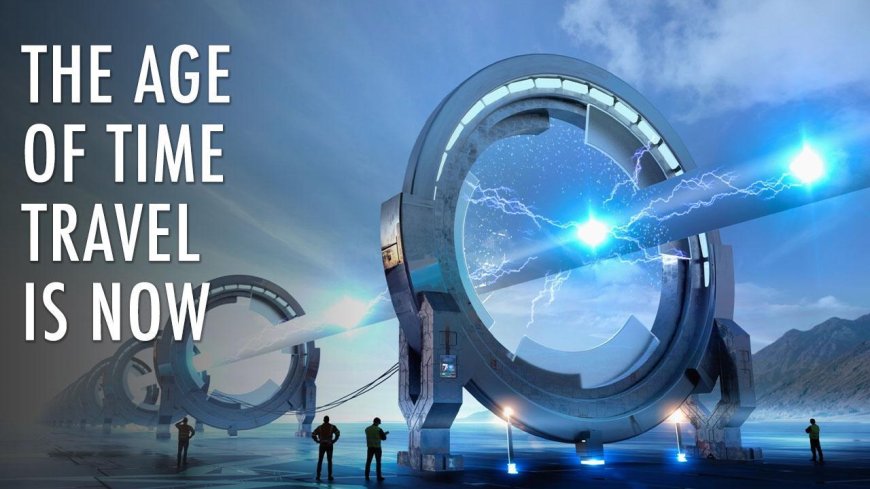
Time travel, a captivating concept that straddles the realms of physics and philosophy, has sparked extensive debate regarding its feasibility and implications. Rooted in the frameworks of general relativity and modified gravitational theories, time travel is theoretically supported by phenomena such as closed timelike curves (CTCs) and wormholes, which suggest that under certain conditions, traveling to the past may be possible.[1][2][3] However, these theories raise significant questions about causality, paradoxes, and the fundamental nature of time, making time travel not only a scientific inquiry but also a philosophical exploration of existence and reality.
The discourse surrounding time travel is often framed by notable paradoxes, such as the Grandfather Paradox, which challenges the consistency of time travel by pre- senting scenarios where altering past events could lead to contradictions about the time traveler's existence.[4][5] Additionally, the concept of the Chronology Protection Conjecture posits that physical laws may prevent time travel altogether to avoid such paradoxes.[6] These discussions underscore the delicate interplay between scien- tific theory and philosophical implications, highlighting the complexities involved in reconciling our understanding of time with the possibility of traversing its boundaries.
In the scientific community, the consensus remains cautious, as significant chal- lenges—both theoretical and practical—continue to inhibit the realization of time travel. For instance, the immense energy requirements for manipulating spacetime and the unresolved questions surrounding the existence of exotic matter necessary to stabilize wormholes present substantial obstacles to empirical validation.[7][8] De- spite this, the theoretical exploration of time travel has influenced cultural narratives and sparked imaginations, leading to a plethora of works in literature and media that grapple with the moral and ethical dilemmas posed by altering timelines.
Ultimately, the inquiry into time travel serves as a bridge between the scientific and philosophical domains, urging a deeper examination of our perception of time, causation, and human agency. As theoretical models and philosophical debates evolve, the question of whether time travel is possible—or whether it exists as
an enduring metaphor for human curiosity about our past and future—remains a tantalizing topic of exploration.[9][10]
Theoretical Foundations
Time travel remains a fascinating topic within the realm of physics, particularly under the frameworks of general relativity and modified gravitational theories. A significant aspect of time travel discussions revolves around the concept of closed timelike curves (CTCs), which are paths in spacetime that loop back on themselves, theoreti- cally allowing for time travel to the past[1][2]. The existence of CTCs poses challenges to conventional initial value problems in physics, as they imply the absence of Cauchy surfaces, which are crucial for defining unique initial conditions[1].
Modified Gravitational Theories
Recent studies have explored the properties of wormholes (WH) within the context of modified gravitational theories. Specifically, researchers have examined models that reduce to general relativity (GR) under specific parameter conditions. One such model, initially proposed by Starobinsky, addresses cosmological inflation and has gained traction for its applications in analyzing matter density perturbations and the universe's accelerated expansion during its later stages[3]. The implications of such models extend to the stability of solutions involving CTCs, where physicists seek stable solutions that allow small changes in initial states to yield predictable results in trajectories[1].
General Relativity and Time Dilation
Einstein's theory of general relativity, published in 1915, fundamentally reshaped our understanding of gravity, characterizing it as a curvature of spacetime caused by massive objects rather than a traditional force[4]. This framework inherently supports the idea of time dilation, wherein time behaves differently depending on the observer's frame of reference, particularly in gravitational fields[5]. The implications of this effect challenge notions of absolute simultaneity, suggesting that events perceived as simultaneous in one frame may not be so in another, thus complicating the nature of time and its flow across different observers and locations[6][5].
Philosophical Considerations
The interplay between time travel and the philosophical interpretations of time—such as eternalism and presentism—further complicates the discourse. While some philosophers argue that a privileged "now" exists within our universe, the relativistic effects introduced by special and general relativity challenge this viewpoint, sug- gesting that time is not a fixed entity but rather fluid and contingent upon relative motion[6]. This philosophical backdrop emphasizes the necessity of integrating sci- entific theories with metaphysical perspectives to grasp the complexities surrounding the possibility of time travel within the fabric of our universe.
Mechanisms Proposed for Time Travel
Wormholes
Wormholes are one of the most intriguing concepts associated with time travel. They are theoretical structures that connect disparate points in spacetime, allowing for potentially instantaneous travel between them[7][8]. Visually, a wormhole can be imagined as a tunnel with two ends located at different points in space and time.
These constructs arise from solutions to Einstein's field equations in general relativity, suggesting that massive objects can warp the fabric of spacetime to create such con- nections[9][8]. However, while wormholes are consistent with general relativity, their actual existence remains unproven, and significant challenges exist in maintaining stable wormholes in a real universe. To keep a wormhole open, scientists theorize the
Cosmic Strings
Cosmic strings offer a fascinating alternative approach to the mechanics of time travel. These are hypothetical one-dimensional defects in spacetime, theorized to possess immense mass and therefore significantly distort the spacetime around them[10]. When an object travels near a cosmic string, it can experience a "warp" effect due to the curvature of spacetime, resulting in what is known as a space-time angular deficit. As this cosmic string approaches the speed of light, the flow of time for the string itself slows down relative to its surroundings, allowing for a form of time travel as the string moves through spacetime[9]. The concept was popularized by physicist J. Richard Gott, who theorized that manipulating cosmic strings could allow for temporal navigation[10].
Closed Timelike Curves (CTCs)
Another proposed mechanism for time travel involves Closed Timelike Curves (CTCs). CTCs are paths in spacetime that loop back on themselves, theoretically allowing a traveler to return to a previous point in time[11][5]. Such curves challenge our intuitive understanding of time and causality, as they imply that events can occur out of chronological order from different perspectives. The implications of CTCs were notably explored in discussions of the Grandfather Paradox, which questions the logical consistency of time travel by presenting scenarios where past events are altered, potentially leading to contradictions[5][12].
The Chronology Protection Conjecture
Despite these proposed mechanisms, the Chronology Protection Conjecture posits that the laws of physics may inherently prevent time travel to avoid paradoxes that violate causality[11][12]. This hypothesis suggests that while the equations of general relativity permit time travel, the physical laws governing the universe could impose constraints that render such travel impossible. This notion serves as a critical coun- terpoint in discussions of time travel, emphasizing the need for careful consideration of the implications of bending the temporal dimension.
Paradoxes and Challenges
Time travel, particularly into the past, presents a myriad of paradoxes and challenges that are often highlighted in both theoretical physics and philosophical discourse.
Among these, the Grandfather Paradox stands as a prominent example, illustrating the complex interplay of causality and the potential for logical inconsistencies in time travel scenarios. This paradox suggests that if a time traveler were to go back and prevent their grandparents from meeting, it could result in the traveler never being born, thus creating a contradiction regarding their ability to execute such an action in the first place[13][14].
Energy Requirements
One of the most significant barriers to practical time travel is the immense energy required to manipulate spacetime or create stable wormholes. The energy demands associated with these processes are currently far beyond our technological capabili- ties, posing a substantial hurdle to the realization of time travel[15]. The astronomical energy requirements illustrate not only the challenges in theoretical understanding but also the limitations of current scientific advancements.
Theoretical Implications
The Grandfather Paradox and other similar logical dilemmas have led to extensive philosophical debates about free will, determinism, and causation[16]. Theories such as the Self-Correcting Universe Hypothesis suggest that the universe may inherently prevent paradoxical situations from arising, maintaining a timeline consistent with the existence of the time traveler[13]. Conversely, the Alternate Timelines Theory posits that each time travel event may create a branching timeline, thus circumventing the contradictions associated with altering the past[17].
Bootstrap Paradoxes
Bootstrap paradoxes further complicate the discussion of time travel. These occur when an object or piece of information exists without a clear point of origin. For example, a time traveler could give themselves a book containing instructions for building a time machine, leading to a self-sustaining loop without a defined source of the information[15]. Such scenarios challenge the conventional understanding of causation and suggest that time travel might create realities that defy our understand- ing of linear time.
Science Fiction and Theoretical Exploration
Science fiction often explores these paradoxes, leading to intricate narratives that illustrate the complexities of time travel[18]. Concepts like "Time Police" emerge in these stories, characters designed to prevent alterations in the past that could
destabilize the future timeline. The fascination with time travel in literature and media reflects not only the scientific curiosity surrounding the topic but also the philosophical implications of manipulating time and causality.
Current Scientific Consensus
The scientific understanding of time travel is deeply intertwined with theories of time and the nature of the universe. A prevailing view in physics, particularly in the context of Einstein's theory of relativity, posits that we exist in a Block Universe or an Eternalist framework, where the past, present, and future are equally real[19]. This perspective raises questions about the reliability of human perception regarding the flow of time, suggesting a need for enhanced dialogue between physics and neuroscience[19].
Within the realm of time travel, a number of theoretical models have emerged. Some physicists have argued that certain conditions may permit time travel without violating the laws of physics. For instance, a study published in "Classical and Quantum Gravity" indicates that classical physics could potentially provide a framework for understanding time travel dynamics, thereby suggesting that local laws of physics do not outright prohibit such phenomena[20]. This view emphasizes the possibility of reversible time travel, contingent on specific conditions related to freedom of choice[20].
However, discussions around time travel also highlight significant philosophical impli- cations. The arguments posed by thinkers such as Rietdijk and Penrose focus on the implications of spacelike separated events, suggesting that certain events, beyond causal influence, challenge traditional notions of free will and temporal existence[6]. This leads to an ontological inquiry into whether the distinction between past, present, and future has any bearing on existence itself, forming the crux of debates between A-theorists, who affirm the passage of time, and B-theorists, who equate time to a dimension similar to space[21].
Philosophical Implications
The exploration of time travel raises significant philosophical questions that intersect with metaphysical concepts such as the nature of time, causation, and personal identity. Philosophers have long engaged with the implications of time travel, par- ticularly concerning the relationship between past, present, and future events. The idea that changing an event in the past could alter the course of history introduces complex discussions around free will and determinism, suggesting that if every event is causally linked, any alteration might have far-reaching consequences for the present and future[22][6].
The Nature of Time
One of the central philosophical debates related to time travel revolves around different ontological theories of time. Eternalism posits that all points in time are equally real, contrasting sharply with presentism, which holds that only the present moment is real, and the growing block view, which maintains that the past and present exist, but not the future[6][23]. These theories provoke thought on how we understand propositions related to time. Some philosophers argue for the necessity of tensed propositions to navigate the temporal landscape accurately, while others contend that stable truth values are essential for coherent reasoning across time[24][6].
Free Will vs. Determinism
The philosophical implications of time travel also intersect with the discourse on free will. If time travel allows for the alteration of past events, it raises the question of whether humans genuinely exercise free will or if their choices are merely the product of a deterministic framework[22][25]. Incompatibilists argue that free will and determinism cannot coexist, while compatibilists suggest that individuals can
The Paradox of Change
Philosophers also grapple with the paradoxes that arise from the possibility of chang- ing the past. The implications of altering an event lead to discussions about causal chains and the integrity of personal identity over time. If a time traveler changes a key event, it could create a divergent timeline, prompting inquiries into the nature
Cultural Impact
The concept of time travel has significantly influenced popular culture, permeating various forms of media and inspiring a multitude of narratives that explore its im- plications. Different cultures interpret time uniquely, affecting their approach to time travel as a narrative device. For instance, while ancient Greeks embraced a cyclical understanding of time, modern Western societies predominantly view it as linear, shaping how stories about time travel are crafted and understood across cultures.[26]
Time Tourism
One notable cultural interpretation is the emergence of "time tourism," a distinct subgenre within science fiction that invites audiences to imagine visiting historical events or figures. Stories like Ray Bradbury's "A Sound of Thunder" illustrate the allure of traveling back in time to witness significant moments, such as the age of dinosaurs, while other works, like Catherine L. Moore and Henry Kuttner's "Vintage Season," depict future travelers experiencing the present.[28] This fascination with time travel serves not only as a means of escapism but also as a commentary on human curiosity and the desire to understand our history and heritage.
Impact on Popular Culture
Time travel has been a recurring theme in numerous films and television series, cementing its place in popular culture. Iconic works such as "Back to the Future," "Doctor Who," and H.G. Wells’ "The Time Machine" showcase various interpretations of time travel, each addressing different paradoxes and ethical dilemmas that arise from altering the timeline.[29] These narratives compel audiences to reflect on the fragility of time and the potential consequences of their actions, highlighting a moral responsibility tied to the manipulation of time.
Scientific Grounding and Ethical Considerations
As time travel narratives evolved, they began to incorporate real-world scientific principles, leading to discussions about the feasibility of time travel. The influence of theoretical physics, such as Einstein's theory of relativity, has shaped how these stories depict time travel, providing a blend of scientific rigor with imaginative story- telling.[30] However, such portrayals also raise ethical concerns regarding the impli- cations of changing historical events, which could result in unintended consequences and temporal paradoxes.[31] This intersection of science fiction with philosophical inquiries continues to captivate audiences and provoke discussions about the nature of time itself.
References
[1] : Time Travel and Modern Physics - Stanford Encyclopedia of Philosophy
[2] : Time Travel and Modern Physics - Stanford Encyclopedia of Philosophy
[3] : Investigating the Physical Properties of Traversable Wormholes in the ...
[4] : Understanding time travel through the lens of Physics
[5] : The Possibility of Time Travel through General Relativity - Arcadia
[6] : Eternalism - Internet Encyclopedia of Philosophy
[7] : What Is an Einstein-Rosen Bridge: Wormholes Explained
[8] : Can we create stable wormholes? - cteec.org
[9] : Wormhole - Wikipedia
[10] : 11 Widely Accepted Theories of Time Travel in Physics - NowScience
[11] : The Impossibility of Time Travel: A Critical Examination
[12] : Time Travel: Fact or Fiction? - Department of Mathematics
[13] : The Grandfather Paradox: A Time Travel Conundrum
[14] : The Grandfather Paradox: An Essay on the philosophy of Time Travel
[15] : The Physics of Time Travel: Examining the Possibilities and ... - Medium
[16] : The Grandfather Paradox: Exploring The Time Travelers Dilemma
[17] : How The Grandfather Paradox Is Depicted In Popular Culture - Time Quiver
[18] : Time Travel in Science Fiction - Anderson Institute
[19] : Two Theories of Time, and What They Mean for Time Travel [20]: Is time travel theoretically possible? - oeaw.ac.at
[21] : Notes to Time Travel and Modern Physics - Stanford Encyclopedia of ...
[22] : Theories On How The Grandfather Paradox Affects Reality
[23] : Eternalism (philosophy of time) - Wikipedia
[24] : Time (Stanford Encyclopedia of Philosophy/Summer 2024 Edition)
[25] : Time Travel, Determinism, and Free Will: A Philosophical Exploration
[26] : The Philosophy Of Time And Timetravel - Time Quiver
[29] : Time travel: is it possible?
[30] : The History Of Time Travel In Science Fiction - Time Quiver
: Google's Time Travel Research: Unlocking the Past and Future







